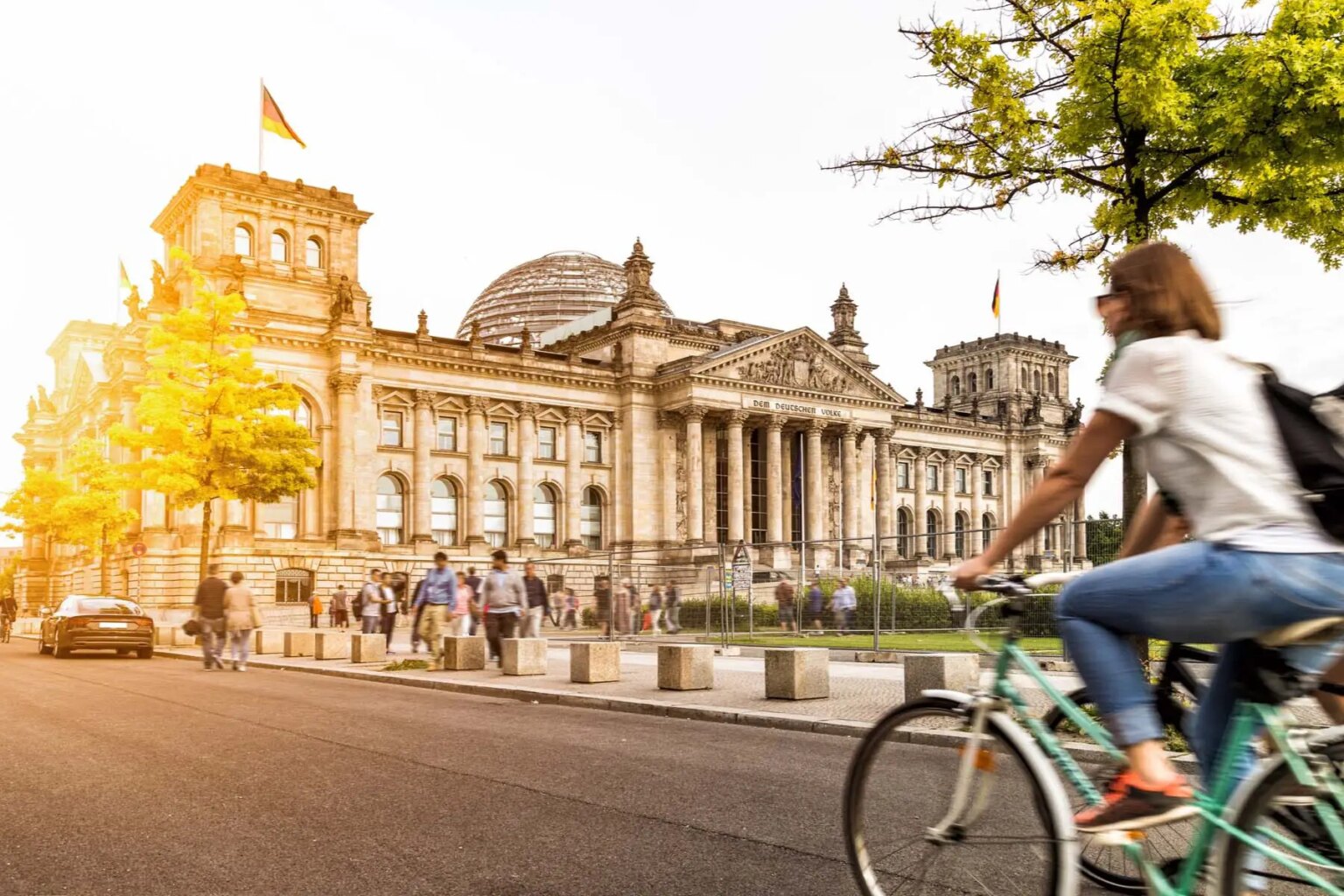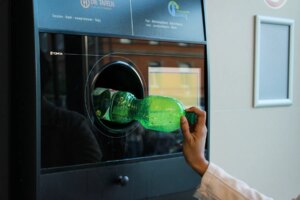When relocating to Germany, there are plenty of things to keep you busy while you set up your new life. However, ensuring that your expat lifestyle is eco-friendly might not be high on your list of priorities. Thankfully, though, it’s easier than ever to live green in your new home. In fact, there are plenty of easy, everyday ways to live sustainably in Germany – just take a look at these top tips.
PREISVERGLEICH
Looking for the best deal on your energy? Compare your options on PREISVERGLEICH.de. As well as comparisons for utilities, you can explore your options for shopping, insurance, and more. Try out PREISVERGLEICH.de and see how much you could save.
1. Recycle, recycle, recycle
Recycling is one of the simplest ways you can make sustainability an intrinsic part of your everyday life. While many countries around the world have a well-developed recycling system, Germany takes things to the next level. Over recent decades, local governments have invested significant funds in reducing the amount of waste. This includes the famous Green Dot scheme (Der Grüne Punkt), which helped cut down on the amount of packaging used throughout the country.
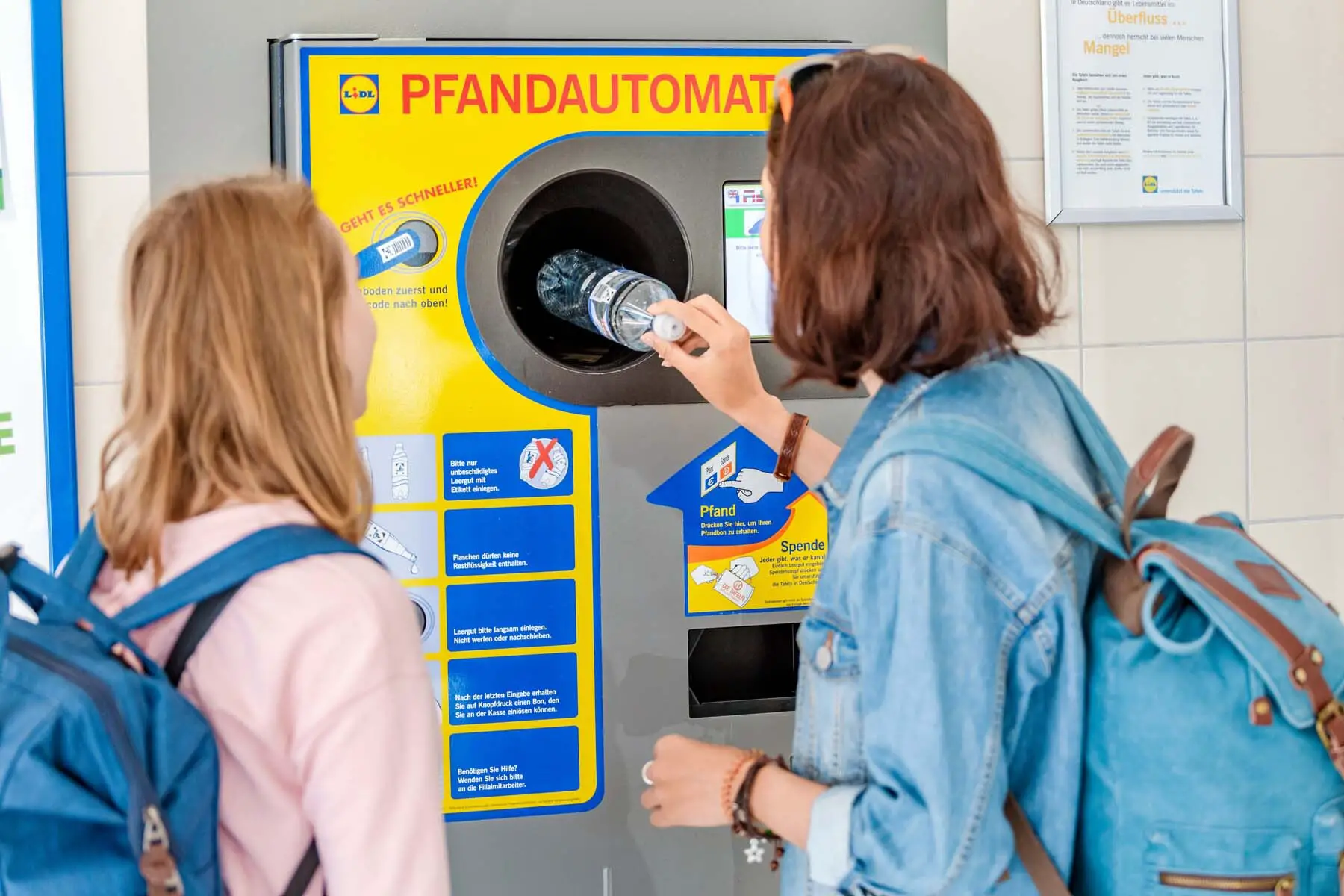
As well as sorting out your weekly household waste into different colored receptacles, Germany even has a way for you to make (back) some money from your green habits. The country’s popular glass recycling system allows you to get a refund on many of the glass bottles you buy at the supermarket. Simply check your receipt to see if you paid a deposit (Pfand), and you’ll be able to get your money back at one of the handy supermarket machines. Any other glass can be conveniently recycled curbside, too.
2. Let the train take the strain
As one of Europe’s biggest countries, it’s safe to say that Germany has something for every taste. From family-friendly ski resorts in the German Alps and quaint seaside resorts on the northern coast to the grandiose opulence of Munich and the fairy tale castles that dot the landscape, you have plenty of choice. If you’re looking to explore your new home, you might be tempted to head out on Germany’s excellent road network. However, if you’re thinking green, then why not let the train take the strain?
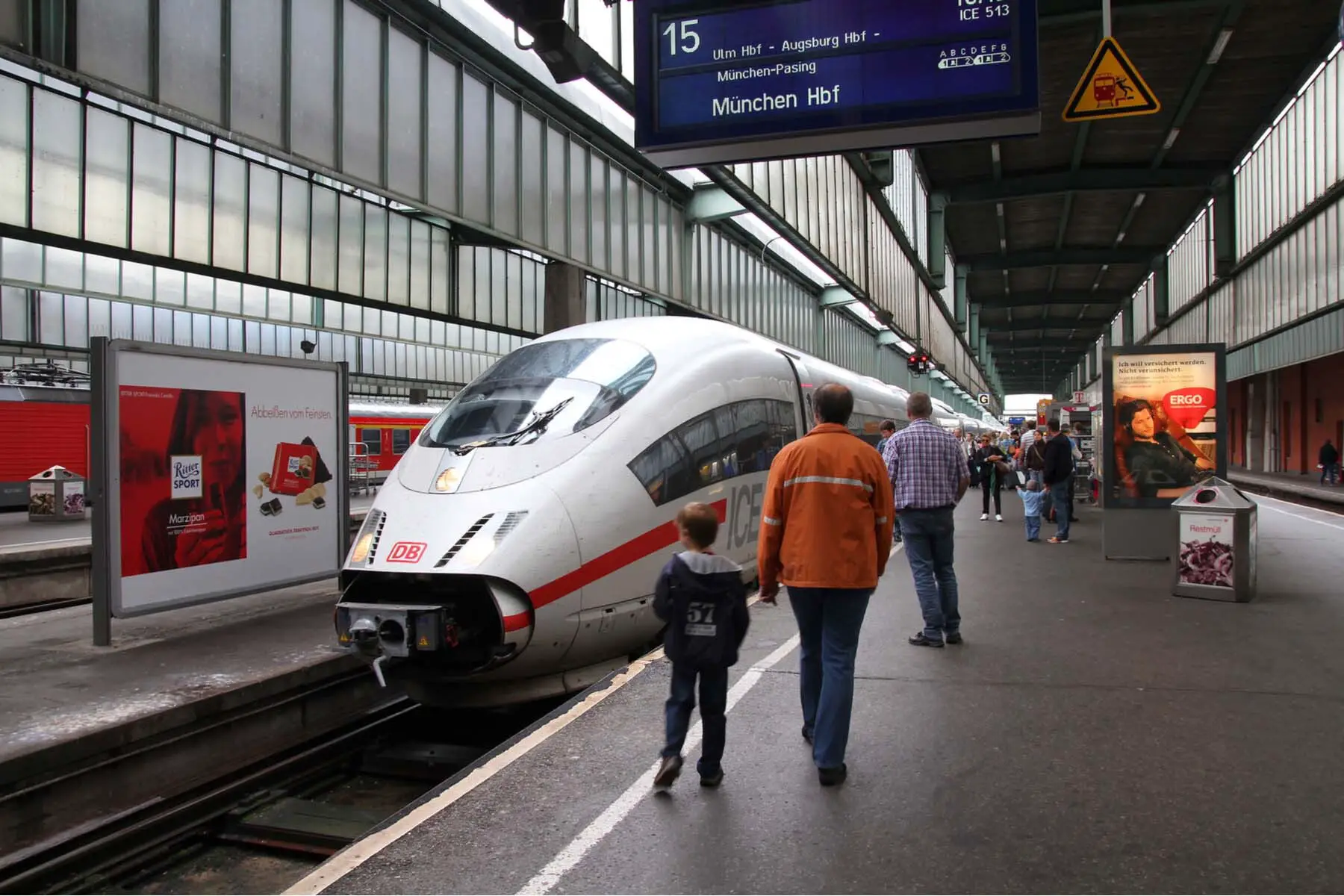
Germany’s rail network is widespread, efficient, and surprisingly affordable when compared to other European countries. The entire network runs like clockwork, crisscrossing the country with modern, comfortable trains. Buying tickets and checking train times can be done easily on DB’s Navigator app, which is one of Germany’s must-have apps. Not only will you get to your destination relaxed and ready to explore, but you’ll also be helping yourself live more sustainably in Germany.
3. Go paperless with your banking
As any expat will tell you, one of the first things you need to do when setting up life in your new home is open a German bank account. As well as helping you set up those all-important house payments – such as your electricity and home internet bills – it will also make everyday life in Germany a lot easier. For instance, you’ll be able to shop easily at your neighborhood supermarket and pay for your round of drinks in the local Biergarten. And if you want to make your banking as green as possible, then why not consider signing up for mobile banking in Germany?
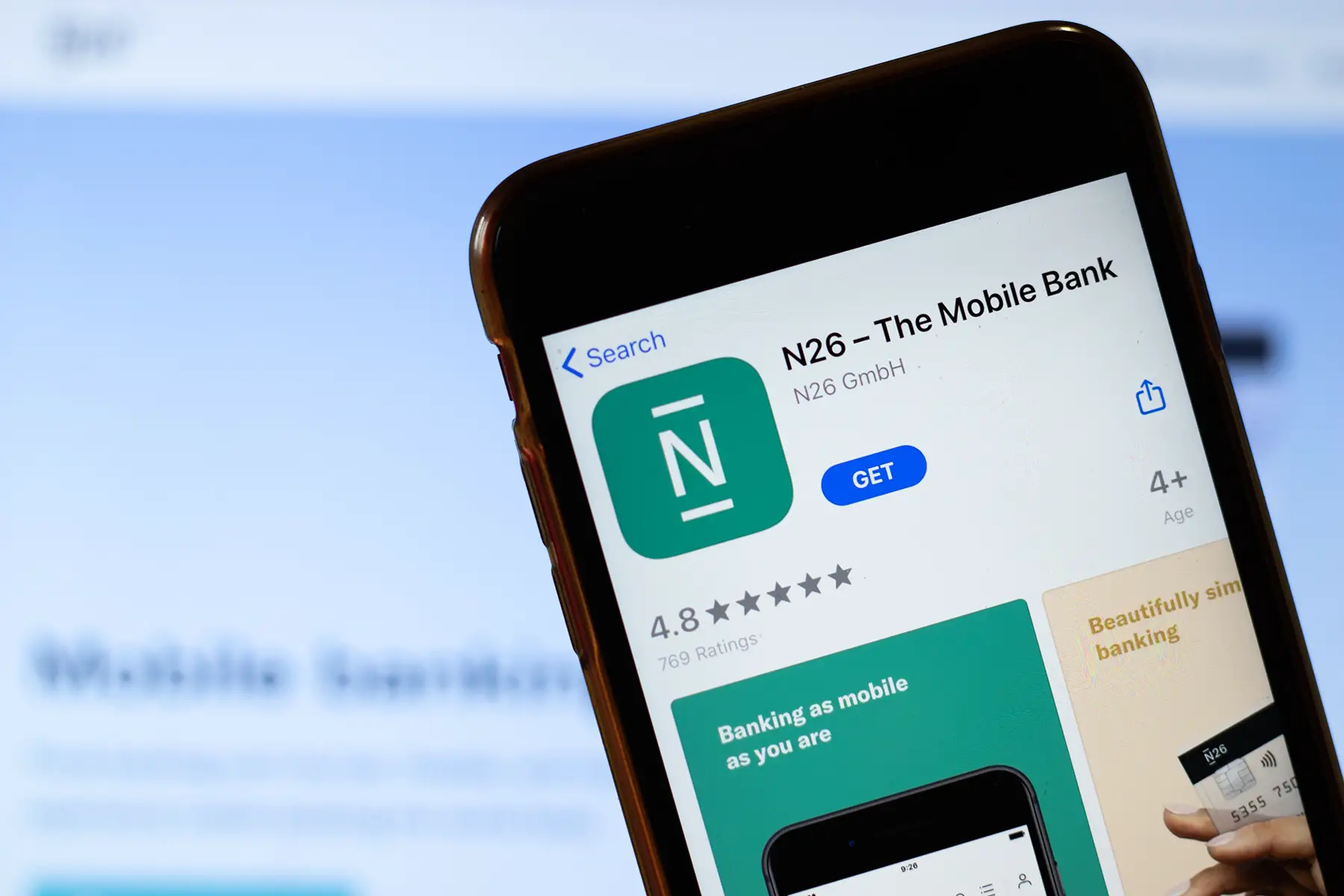
Having all your banking needs met on an easy-to-use app can help you significantly reduce any unwanted letters and mail from your bank. While a growing number of traditional German banks are moving their operations onto apps, you also have the option to use a dedicated mobile bank such as N26. This German mobile bank offers a range of services on its English-speaking app. You can simply download the N26 app and get a German IBAN, international payment options, and much more from the comfort of your phone.
4. Connect to green energy
Just imagine if living more sustainably in Germany was as simple as flicking a switch in your own home? Well, it could be if you sign up for the right green energy options for your German home. Signing up for a renewable energy package is an easy and effective way to make your German life greener. Germany is rapidly improving its renewable energy sources, and signing up for a new green deal is a great way to signal to energy suppliers and governments alike that they should be investing more in sustainable energy, such as solar, wind, and hydroelectricity.

If you’re a recent arrival in Germany, then setting up your home utilities is probably high on your to-do list. And when it comes to choosing the right green deal for your home, you have plenty of options in the country. There is an ever-growing list of companies offering energy from renewable sources as part of their wider product range. Some companies only offer green energy, making it even easier to decide. Energy providers in Germany offering 100% green electricity include:
You can compare the best deals which include green energy options on comparison sites such as PREISVERGLEICH.de.
5. Download the right apps
Do you feel like you live your whole life on your smartphone? Well, you’re not the only one. These days, it can seem like we’re always messaging loved ones or scrolling through the latest updates on social media. But did you know that all this scrolling can also help you live a greener life? That’s right – downloading the right apps can be an easy first step to living sustainably. Whether it’s an app for the local Berlin bike scheme, fresh farm deliveries in Freiburg, or even car-sharing in Cologne, there’s plenty to choose from. Just remember – if an app is going to make a real difference, it needs to be one that you will actually use.

To help get you started, here are our favorite German apps for sustainable living:
- Save delicious food from the trash by downloading Too Good To Go. Use the app to find treats at reduced prices from your favorite neighborhood eateries, helping them cut down on food waste.
- Spend your life searching for things online? Then why not plant a tree with every search? Download Ecosia and your own personal tree counter will tell you how many you have helped plant.
- Thinking about your next trip around Germany? Then give the car a few weeks off and plan your journey with the DB Navigator app. You can check train times, buy tickets, and more in one simple app.
Read our guide to the top 10 must-have German apps for more information on German apps and our suggestions for what you should be downloading,
6. Sign up for a recipe kit
It might not be something that you often think about when it comes to living greener, but food waste is a growing issue in the quest for sustainability. In fact, according to official estimates, around 11 million tonnes of food is thrown away every year in Germany. In response, the government has drawn up plans to reduce this figure by 50% by the year 2030. This includes tackling wastage in the food and hospitality industry, at your local supermarket, and in the kitchens of households across the country. But how can you help reduce your food waste at home? With an app, of course.
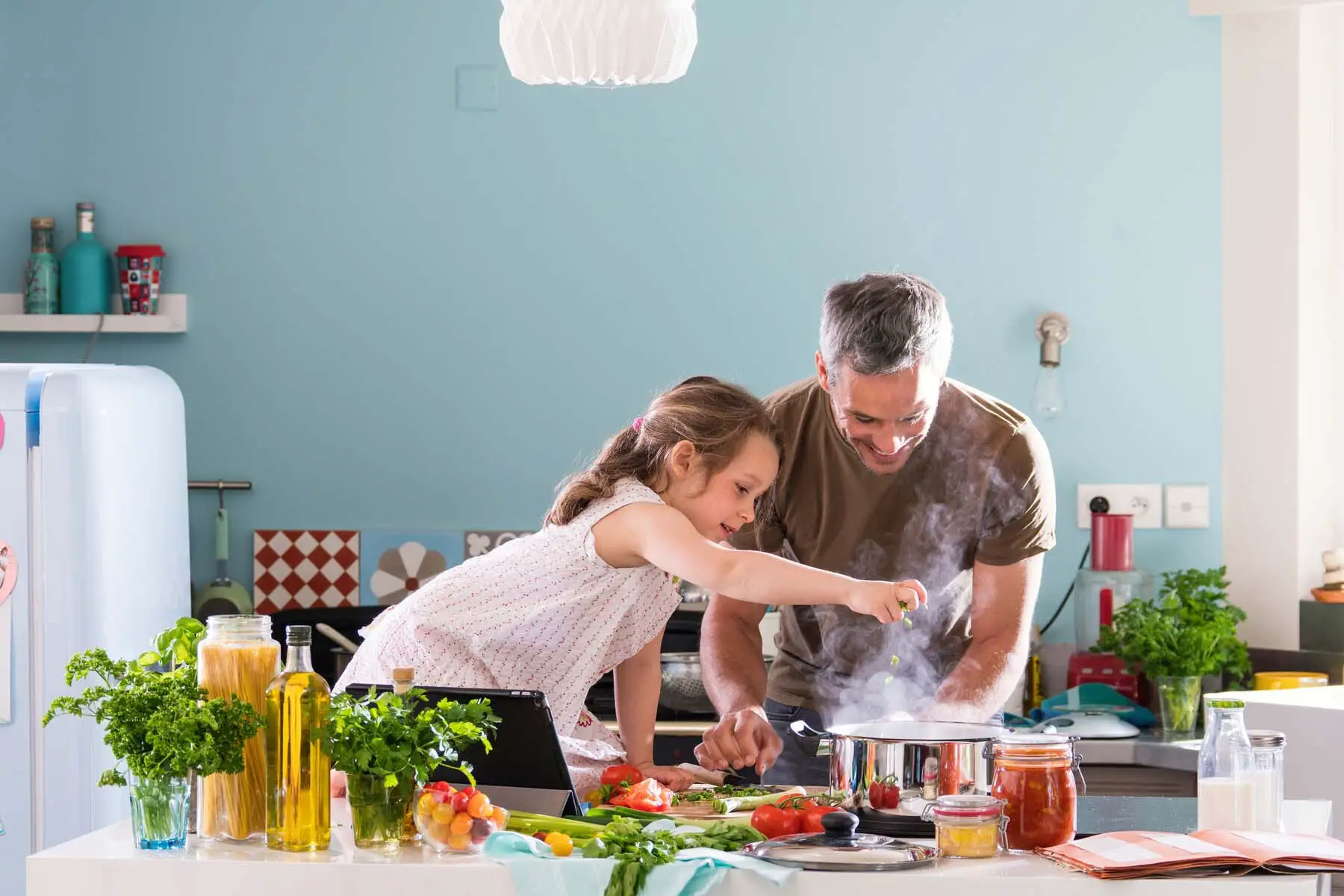
Recipe kits are an increasingly popular way of ensuring that you cut down on all that unwanted food waste at home. These meal boxes deliver your choice of fresh, innovative ingredients straight to your door, ready to be turned into tasty meals for the whole family. Not only will you be eating fresh and cooking smart, but you’ll also significantly cut down on your food waste in the process. The good news is that in Germany there are a number of recipe kit providers, including HelloFresh, Marley Spoon, and Dinnerly. You can order online or on the app to start your culinary journey to lowering food waste with ease.
7. Cut down on water usage
It’s not just food waste that you could be cutting down on in order to live sustainably in Germany. Water waste is a growing concern throughout Europe – and the relatively rainy country of Germany is no exception. Fresh water is becoming an increasingly scarce resource, and to ensure that future generations have enough of it, it’s important to cut down on water usage if you’re thinking about living sustainably.
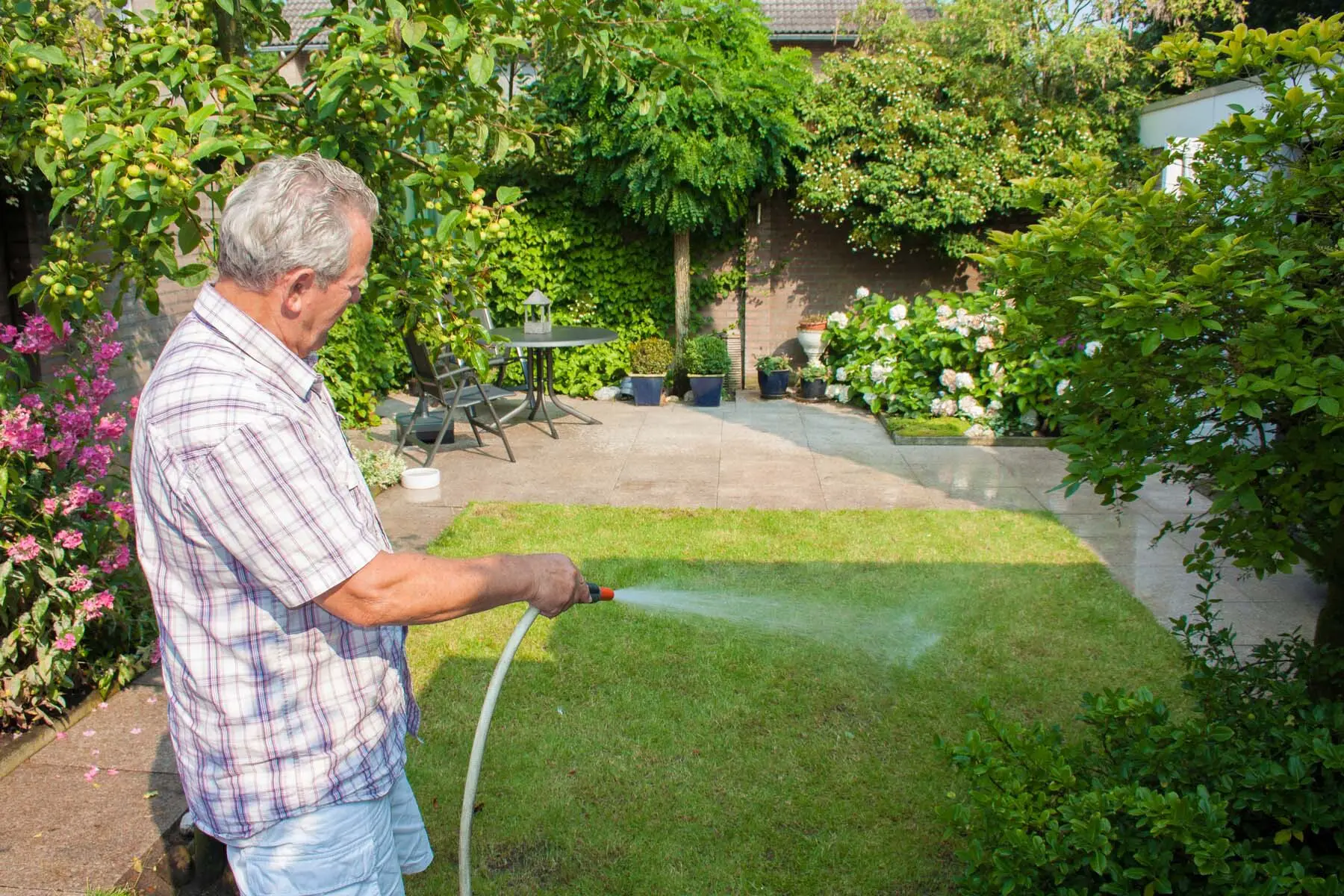
Thankfully, saving water around the home is quickly becoming easier than ever in Germany. In the bathroom, for instance, why not consider swapping your shower head for a new one that restricts flow while keeping a steady stream. In the kitchen, you can reuse boiled water by draining it into a bowl and not pouring it down the sink. This can then cool and be used when tending to your garden. When gardening, always go for low-water varieties and avoid using hose pipes, too, as these can significantly increase your water usage. You can also carry a reusable bottle with you when you’re out and about to avoid buying water.
8. Leave the car at home
We’ve already discussed the benefits of taking the train when traveling across Germany, but you can also reassess your everyday car use. After all, transport is one of the biggest contributors to carbon emissions throughout Europe, and cutting down your car usage is a healthy way to reduce your carbon footprint every single day. However, you don’t need to invest in the latest Tesla model in order to boost your green transport credentials in Germany because there are plenty of other ways to do this, starting with leaving your car at home.
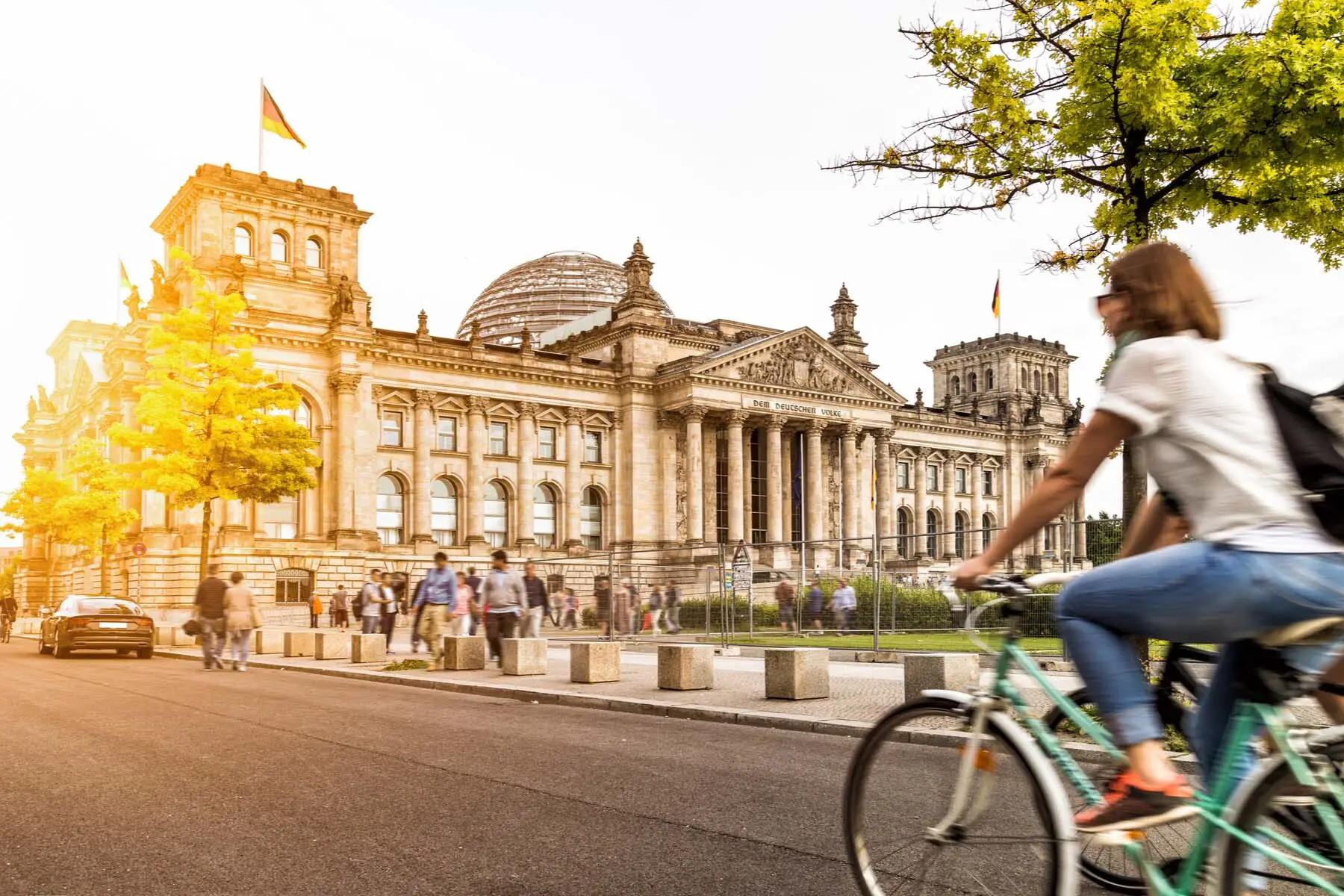
Despite being one of the biggest countries in Europe, it’s quick and painless to move around Germany using public transport. The country’s transit network is one of the best in Europe, connecting with metros, trams, trains, and buses throughout the country. However, if you’re looking for an even healthier commute, then why not do it on two wheels? Whether you’re getting on your own bike, joining one of the many German bike-sharing schemes, or even hopping on an e-scooter, you have plenty of options if you want to leave the car at home.
9. Shop locally
As any expat will tell you, exploring your local German supermarkets and grocery stores is definitely an everyday treat. However, have you ever thought about how far all that supermarket food has actually traveled before it reaches your grocery store shelves? From avocados and almonds to tomatoes and tuna, many of your everyday favorites have journeyed from far and wide before they arrive on your dinner plate. These food miles rack up huge amounts of carbon emissions on these journeys alone – and tackling this issue is a big part of living sustainably in Germany.
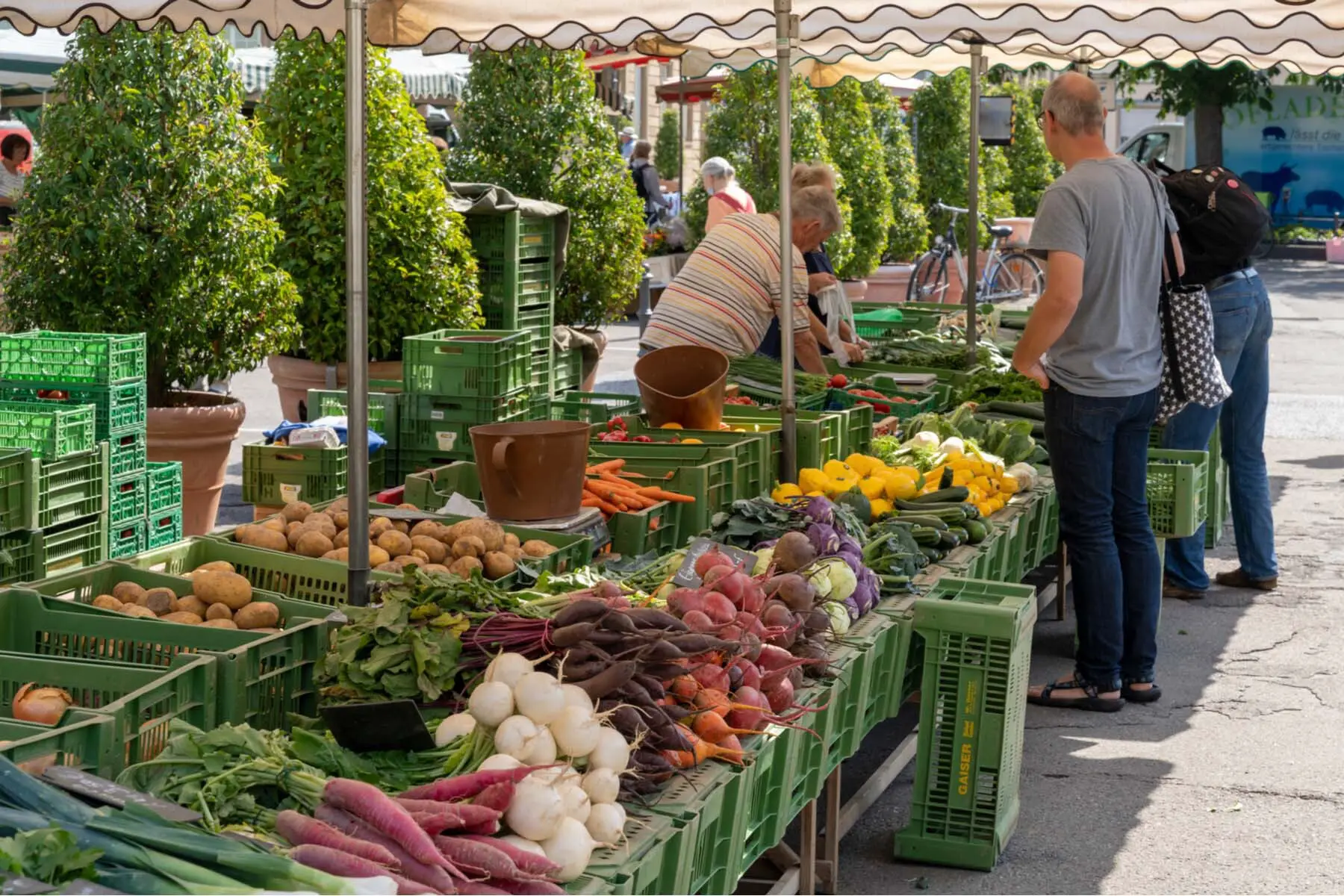
So how can you reduce your food miles in Germany? Well, thankfully, there are a number of ways to lower the carbon footprint of your grocery shopping. Firstly, you can make difference choices in the supermarket aisles. For instance, instead of choosing those products from far off lands, opt for locally-grown seasonal produce wherever possible. Another way is by shopping locally, whether in neighborhood grocery stores or at your nearest food market. Not only are these a great way to experience German food culture, but you might also come across a few surprises while perusing the market stalls, too!
10. Grow your own
Don’t feel like heading to your nearest supermarket or food market for all your fresh fruit and vegetables? Or perhaps you’ve always dreamed of having your own market garden in the backyard? While buying local is a great way of living sustainably, there’s nothing quite like growing your own food at home. Just imagine putting together your very own German Kartoffelsalat using potatoes grown outside your back door or some Sauerkraut pickled with cabbages picked by your own hands. Suddenly going green sounds like an exciting gardening adventure, right?

And you don’t need to have a farmhouse outside Freiburg or a sweeping garden near Gelsenkirchen to do this, either. Even if you’re living in a cozy studio in central Stuttgart, you can still live sustainably in Germany by growing your own food at home. Just start with something small, like a herb garden on the kitchen window sill or some tomato plants on the balcony, before stretching your legs. Your new friends and colleagues will certainly be impressed when you start using your homegrown goodies in your cooking!
